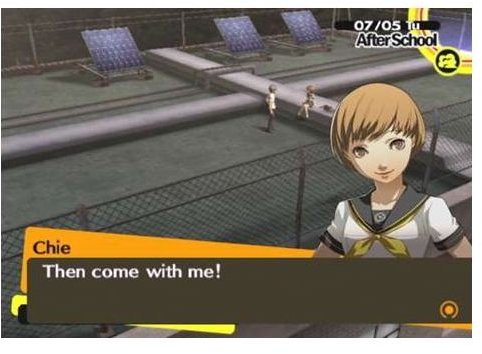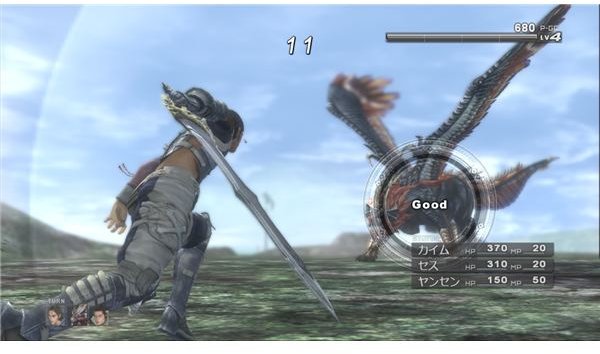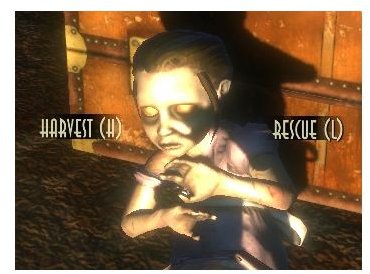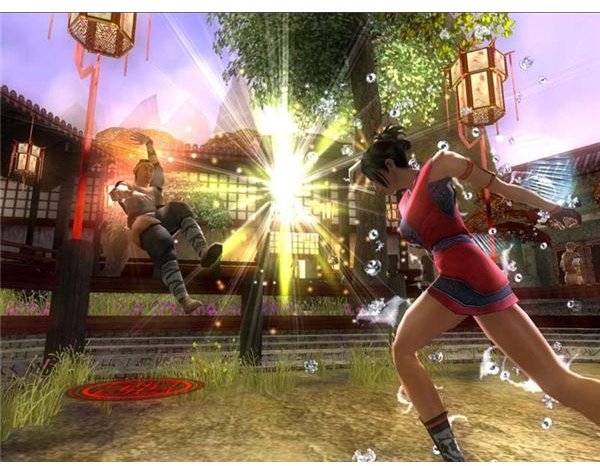Console Game Design: Illusion of Choice and Morality in Gaming

Morality, Forget About It
Morality in gaming is often not on point. Fortunately most game developers have developed a succinct and easy way to negate the difficulties of fleshing out something that may not necessarily be possible at all, true moral conflict in gaming.
Instead of giving a weighty and meaningful choice, that impacts the events afterwards and has an emotional resonance to the player, they decide to provocatively give the player an illusion of choice.
This illusion comes in various forms, here I will discuss the different ways in which developers have accomplished this and why it may not have to be necessary or perfunctory for creating a morally challenging game.
Persona!!!
An unobtrusive and perhaps easy use of this illusion is taken from the land of the rising sun and their almost exclusive use of inane dialogue choices in JRPG’s. For this example I’ll use Persona 4, there are near infinite choices aside from this pick, the RPG/Life Sim made by Atlus and subsequently one of the standout games of last year for me personally.
At various points throughout the game, Atlus deem it necessary to give you dialogue choices and options when practising your social acumen with sightly manga designed Japanese teenagers.
While these choices give the appearance that you are gaining or losing favour with the person your talking to, in eventuality, regardless of choice taken, the game will continue on invariably in the same manner and reach the same conclusion (even if the differing options give inconsequential and slight differences in advancement).
Choice for Choice’s Sake
This illusion isn’t limited to the social encounters and levelled scale that presides over relations between your acquaintances. It is also a part of various other scenes whereby a reticent choice has no impact on the dialogue afterwards and is more an illusion of role playing or unnecessary ode to self-awareness and breaking of the 4th wall.
Certainly this is an illusion that most JRPG’s utilise and the recurring theme of giving the player a choice for the sake of choice is, more often than not, used to veil the idea of a persistent and fleshed out morality system with something with no impact or purpose.
Linearity and Grinding

Specifically, this lack of real choice, hinders the non-sequential nature of the game and when looked at closer, shows the inanity of linearity that a lot of JRPG’s possess under the hood. In the case of Persona this is circumvented through the ability to choose how to spend your time away from dungeon crawling and cutscenes via your typical date/life simulation gameplay.
Unfortunately, other JRPG’s developers aren’t actively providing a means of choice in their games like Persona has at least attempted to give players. Most other games of this style try to apply the mechanic of grinding and dungeon crawling to blur gamers opinions.
While I won’t contaminate this article with my views on grinding (that will have to wait), the brazen requirement to grind in JRPG’s debilitates the inherent choices you have, a prime example being the forcing of the player to grind out a few levels before defeating a boss et al.
Western Attitudes
This superfluous dialogue option pandemic of mainly Japanese role playing games is almost a minute criticism in comparison to some other flawed attempts at or illusions of choice in video games.
The crux of my argument comes from 2 separate areas, both with their own conundrums and hazy illustrations of choice, they are the 2K juggernaut Bioshock and the western RPG games of Bioware post 2003 (specifically KoTOR, Jade Empire and Mass Effect).
Continue onto page 2 for more on this startling aspect of game design and developers oversight.
Rapturous Illusion
Hopefully most reading this are aware of Bioshock’s ability to create a supposed moral dilemma with the two-sided little sister dynamic. Whereby a player can either harvest the girl for the substance adam (equating to magic points in RPG speak) or can save her for a cutback penalty whilst having the advantage of feeling morally just afterwards.
While I won’t divulge further extrapolation on this morally backwards concept (it initially seems more rewarding as a gamer to kill the little sisters) it needs to be shown that another problem occurs even if the moral conflict is ignored.
Moral Indifference

The choice of being entirely good or bad isn’t reinforced by anything during the game and what most would agree is a pretty shoddy and haphazard ending dependent on the absolute choices you made.
Not only does that provide the backdrop for an illusory decision mechanic, it is only emphasised when taking into account the apparent inconsequential change in overall adam the player receives depending on their actions.
The fact the game will play invariably the same, the abrupt and poor ending excused, regardless of this supposed important moral choice is indicative of the illusory nature of modern storytelling in games and their inherent difficulty in creating a well-intentioned and plausible moral system that works symbiotically with the game mechanics.
Bioware’s Idealistic Morality
Next we come to the ostensibly well made and often superb Bioware games of recent memory. The 3 games mentioned above all seem to have one thing in common with another, the clear-cut good/bad/neutral dialogue and implicit moral choice system.
I and many others could easily argue that this is a solid representation (at least within the confines of gaming at the present time) to relate moral choices and these same options even have visible effects in the dialogue and actions of the characters thereafter.
While I don’t disagree with this, the idea that your actions are having a definitive or even realistic impact on the world and surrounding people is something I could not see much validity in.
Renegade Remission

The pettiest example would be when you use a “bad” or “renegade” option in the dialogue, whereby one line of dialogue in response has been used to accommodate the outburst (sometimes no new or different dialogue is given). After this, the conversation can be redone, with a separate option being chosen, as if the NPC has forgotten the prior choice made by the player.
Giving the player a choice, in this case a tiny insignificant one, and then not reinforcing that choice through gameplay is what I’d refer to as design dissonance.
It seems this disconnect between a story and its gameplay has become widespread throughout games, taking my Bioshock point above, and is becoming prevalent further due to developers trying to succeed in making a deeper morality model.
The Dark Side of Choice
It’s obvious that the light & dark scale of KoTOR or Jade Empire fits in well with the universe and is mostly superb, however the disconnect between doing something bad and gaining a reward seems lost in moral purgatory.
Once again I’ll leave this point to be furthered at a later date, but seeing a game strive towards telling you one thing through dialogue or cutscenes, then reversing the polarity of those explanations and giving you the opposite through gameplay is really frustrating and frivolous when creating a realistic game world.
A New Hope
Although there is hope that prerequisite game changing decisions enforced by games like Dragonage and Mass Effect 2 will evolve better morality in games, we will still have to come a long way before producing a convincing choice system where illusion and design dissonance don’t take precedence.
Hopefully Obsidian can reclaim former glories with Fallout: New Vegas, showing Bethesda how to create a fleshed out judgement and game defining choice mechanic, because as it stands we are still in the infancy of morality.
